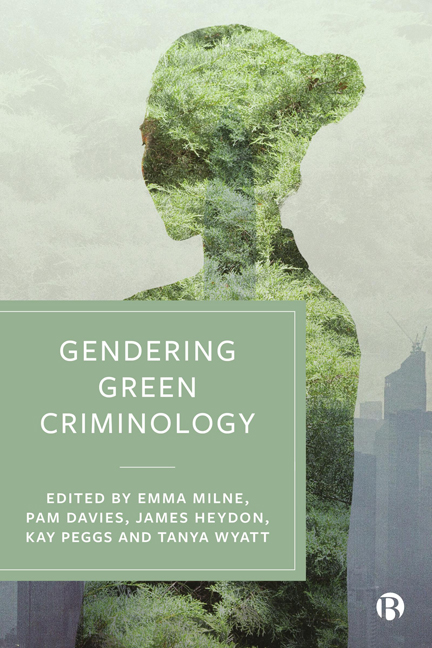7 - Queering Green Criminology: The Impacts of Zoonotic Diseases on the LGBTQ Community
Published online by Cambridge University Press: 28 March 2024
Summary
Introduction
As the effects of climate change continue to grow and become more evident across the globe, it becomes increasingly important to recognise how the effects of the climate disaster affect different groups. While green criminology has created expansive literature examining the differing effects of climate change across different geographies, racial groups and gender, it has so far under-examined the effects on queer people. This under-examination ignores how queer people disproportionately experience climate change and disasters (Goldsmith et al, 2021). This chapter explores the potential and meaning of queering the field of green criminology. Given the lack of connection between queerness and green criminology (in theory or practice) we ask the open-ended question of how should we queer green criminology? The field of green criminology is important for understanding the connections between different forms of marginalisation, disasters and green crimes, but we argue that this inquiry is incomplete without a queer lens.
A queer feminist green criminology should draw on a plethora of fields and methods to strive to understand the experiences of queer peoples in relation to the environment and social harm. The impacts of environmental disasters exacerbate inequality and existing forms of social marginalisation. We draw on the literatures of green criminology, eco-feminism and necropolitics to consider what a queer green criminology could look like. We use zoonotic disease pandemics to model analyses of examples of disasters that uniquely impact queer peoples to support our claims that the state's disregard for queer peoples, especially trans women of colour, constitutes a green crime. To fully understand these green crimes, we argue that green criminology needs a queer lens. The intersectional impacts of environmental disasters are complex and it is imperative that the research is done with intentionality and care. However, up to this point, a gap in the field of green criminology is the lack of attention to the vicimisation of queer peoples.
To model queer feminist green criminology our analyses take a mixed methods approach that relies on statistics, policy analysis and the voices of queer peoples. For example, the narrative by Janet Mock, a trans woman of colour, supports the claims that how queer peoples experience the world and disasters is not only unique but needs to be considered in research and policy.
- Type
- Chapter
- Information
- Gendering Green Criminology , pp. 121 - 147Publisher: Bristol University PressPrint publication year: 2023

